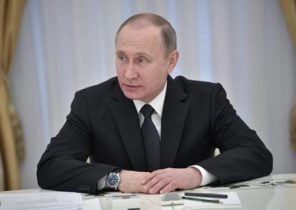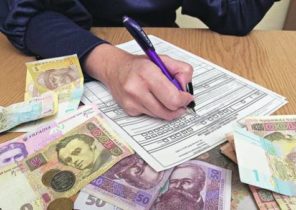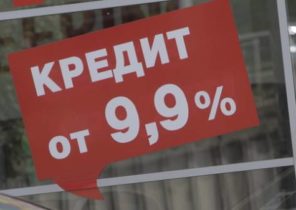The pandemic compared to the war, only this war is against disease, not the person. Like war, pandemic pereformuliruem economy and requires huge increases in government spending and monetary support that will certainly lead to significant growth in public debt and a significant deterioration of the balance sheets of Central banks.
Does this mean that this long olhovoy cycle is complete with inflation? Martin wolf (Martin Wolf) believes that there is, but still allows for such a possibility. After the Second world war, Britain came out with a financial debt that was 250% of gross domestic product, and while modest inflation has helped to partially cope with it.
The author talks about how it can go development today. Western countries entered the crisis with high levels of private debt, low interest rates and persistently low inflation. None of the seven leading Western countries (G7) with the highest income has not approached the level of debt the UK in 1945. However, the pre-crisis level of debt of Japan amounted to 154% of GDP, and Italy 121%.
Influence covid-19 on the economy, of course, differ from the effects of war. War restructuring economy and destroy physical capital. Coronavirus squeezed economy, as happened a sharp decline of demand and supply that are directly dependent on contacts between people. Well-known economist Olivier Blanchard (Olivier Blanchard) said that direct result can be a serious deflation: a sharp rise in unemployment, the collapse of raw materials prices, at the same time, the costs tend to zero, and savings show a sharp increase. Consumption patterns have changed so much that the inflation index has lost all meaning.
Martin wolf says that ten years are “hysterical arguments” that the bloated balance sheets of Central banks is, say, the harbinger of hyperinflation. Followers of economist and Nobel laureate Milton Friedman (Milton Friedman), I believe this statement is incorrect: an increase in funds Central banks offset the reduction of money provided with loans. A list of the measures for the money market gradually has grown since the 2008 crisis.
However, this time things are really different, says the author. Over the past two months the index of the US money supply M2, which includes demand, savings and deposits for a fixed period of time, and the broader index M4, which assesses components of their share in the transaction, demonstrate large leaps of growth. From the point of view of economists-monetarists like Tim Congdon (Tim Congdon), the combination of limited volume production with rapid money growth portends a jump in inflation. But it is possible that the pandemic has reduced the velocity of circulation of money: people can keep the money and not to waste them. But there is no absolute certainty — it is impossible to forget the widespread and unexpected surge of inflation in the 1970-ies. It can happen again, says Martin wolf.
And if you take a longer-term perspective? Economist, Olivier Blanchard predicts that we seem to be faced with the same structural weak demand, low inflation and low interest rates, in other words, the Japanese model who has worked for a generation. The picture is overshadowed by the fact that China is moving towards slowdown in the economy and declining investment. Olivier Blanchard believes that there are three reasons why inflation may surprise: a significant increase in government debt; high jump in interest rates necessary to sustain the economy; and fiscal dominance, or subordination of the Central Bank needs the government’s cheap financing.
It is impossible to exclude and rising debt ratios. But at the moment the most vulnerable financially countries are Japan and Italy. While Japan has for many years failed to raise the inflation rate. But Italy is still under the control of the Eurozone. With regard to interest rates, the Charles goodheart (Goodhart Charls), Professor at the London school of Economics, and economist Manoj Pradhan (Manoj Pradjan) argue that there will be serious structural changes. The period of globalization and deflation arising from the growth of Chinese exports is over. The pressure of wages on production costs will increase. When soaring costs caused by unlimited fiscal and monetary policies, will grow at inflation, it will be treated as temporary or even expected since the real burden of the debt will actually be reduced.
Among the beneficiaries of this actual reduction of the real burden of debt will be the government. The politicians will be furious if Central banks increase the interest rate of growth of nominal GDP and will be forced to go to the fiscal adjustment, which will be insufficient to cope with the huge budget deficit that emerged as a result (which is true!) introduced anti-crisis programs.
Is also quite high mass rejection of a repetition of the situation with reduced government spending, what will happen after the financial crisis. In addition, you will see strong resistance to raising taxes, which is necessary to reduce the budget deficit as the recovery of employment.
Then the government likely will require Central banks cheap Finance that will probably result in strengthening other forms of financial repression, including control over the movement of capital. These measures are justified by the need to demonstrate national sovereignty.
Martin wolf asks: was it all inevitable? His answer: of course not. And here’s how he explains it. Those government bodies, dominated by a common approach must cover all your debts at today’s cheap rates with the longest maturities. As soon as the economy will recover, they should raise taxes for those who can afford to pay for them. Adverse structural changes predicted by the Lord Goodheart and Pradhan, quite possible. And it seems even more likely further deterioration of the situation of the workforce because of increasing automation. Moreover, we will witness an excess of savings because the investments affected by the crisis will remain at a low level.
The author predicts that many countries that can’t afford the loans in their own currency, definitely will be forced to declare a default and Eurozone members will be at a crossroads. The future remains uncertain.
In his pessimistic conclusion, Martin wolf writes: the pandemic has shaped some features of the war economy. Arguably, the chances of inflation and grew so much. Wolfe warns: “Podstrahuet. Do not put at stake the last thing you have left.”







